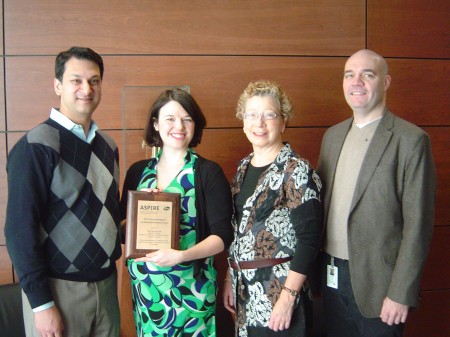The Thorbecke award was created by the SLB to honor G. Jeanette Thorbecke, M. D., Ph.D., and Professor of Pathology at the New York University School of Medicine, who tragically died in a swimming accident in November 2001. The award is intended for a deserving young female investigator working in the area of cellular and molecular mechanisms of host defense and inflammation.
As part of the award, Dawn will present recent work from the Bowdish lab at the 2011 SLB meeting in Kansas City, MO entitled “Age-Associated Changes in Monocyte/Macrophage Function Predispose the Elderly to Infectious Disease”, to be presented on Thursday September 22, 2011 at 4:45pm. In addition she will be giving a second talk at 5:15 Sept 23 in the “Hematopoiesis under Pressure” section.
Many prestigious early career scientists have received this award and Dawn is honoured to be counted among them. Dawn would like to express her thanks to all those who nominated her.
Click here for the article on the McMaster Daily News.


